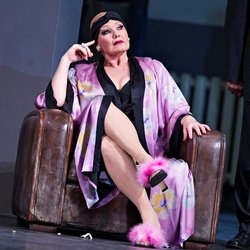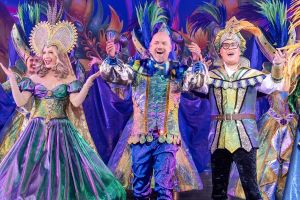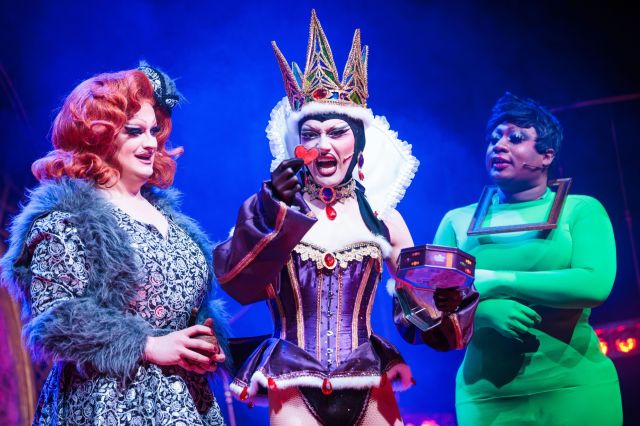Ariadne auf Naxos (Royal Opera House)
Karita Mattila makes a thrilling role debut as Ariadne in the Royal Opera’s revival of Strauss’s opera

© Tristram Kenton
Ariadne, which Strauss wrote in tandem with his most celebrated collaborator, Hugo von Hofmannsthal, consists of an extended prologue followed by a one act opera. Within the prologue Strauss lays bare the eternal conundrum of what constitutes low and high art, conjuring up a world where the poor, earnest composer is at the beck and call of his employer, allegedly the richest man in Vienna. When it’s announced that the composer’s tragic, heartfelt opera, Ariadne auf Naxos, is to be played simultaneously with the bawdy antics of a commedia dell’arte troupe all hell breaks loose.
The whole ‘opera within an opera’ scenario asks telling questions about art and its purpose in the world, and as the desperate composer hails music as the holiest of all art forms, the curtain descends as he makes an anguished exit, thwarted in his ambition to have his tragic masterpiece, Ariadne auf Naxos, performed as he intended.
Christof Loy’s elegant, contemporary staging, revived here for the third time, succeeds in telling the story clearly within Herbert Murauer’s ingenious designs. As the curtain rises so does the stage to reveal the chaotic hustle and bustle of the ‘below stairs’ area where preparations are underway for the evening's entertainment. Ruxandra Dunose's impetuous, ardently sung Composer takes centre stage and there’s a superlative supporting cast including Thomas Allen’s dishevelled Music Master, Ed Lyon’s preening Dancing Master and in the speaking part of the Major Domo, Christopher Quest is suitably supercilious.
"an outstanding celebration of the composer’s 150th anniversary"
In the title role, and as the tantrum-prone Prima Donna in the Prologue, Finnish soprano Karita Mattila makes an auspicious role debut. Tempestuous, temperamental and with a delicious eye for sly comedy she dominates the proceedings in the first half with a wonderful air of indignation, and once on Ariadne tears up the stage with formidable hauteur. Her singing is refulgent, poised and full-blooded; true there are a couple of moments of strain, but she manages to overcome the occasional vocal shortcoming by sheer dint of her musicianship and total commitment to the role. She exudes star-quality from every pore, which isn’t something you can say about most sopranos these days.
It says a lot about Jane Archibald’s spunky Zerbinetta that within such august company she was still able to shine and make her mark. The coloratura of ‘Großmächtige prinzessin’ held no terrors for this delightful Canadian soprano, revealing a voice that was even throughout its range, full of colour and light and shade. In the tortuous role of Tenor/Bacchus Roberto Sacca overcame the vocal hurdles, never resorted to bluster and with Mattila in the final duet reached heights of quasi-Wagnerian splendour.
In the pit Antonio Pappano was returning to the production for the first time since it ushered in his reign as Musical Director in 2002, and was rewarded with stylish playing from the orchestra. Not one to dilly-dally there was a welcome forward momentum to his conducting, which gave the opera an added impetus.
After a coruscating Elektra at the start of the season, and a sensational new staging of Die Frau ohne Schatten, this brilliant revival of Ariadne sets the seal on what has been an outstanding celebration of the composer’s 150th anniversary by the company.












